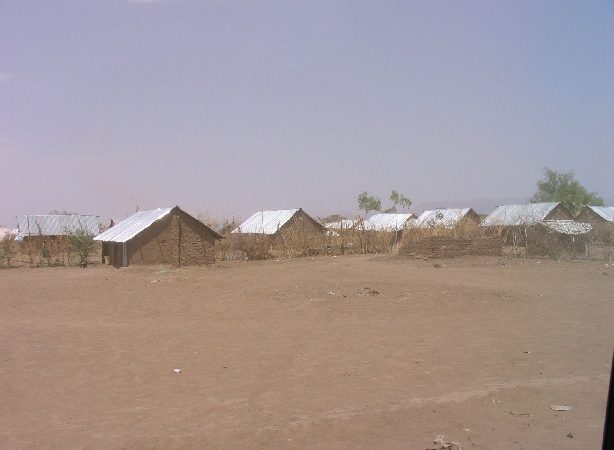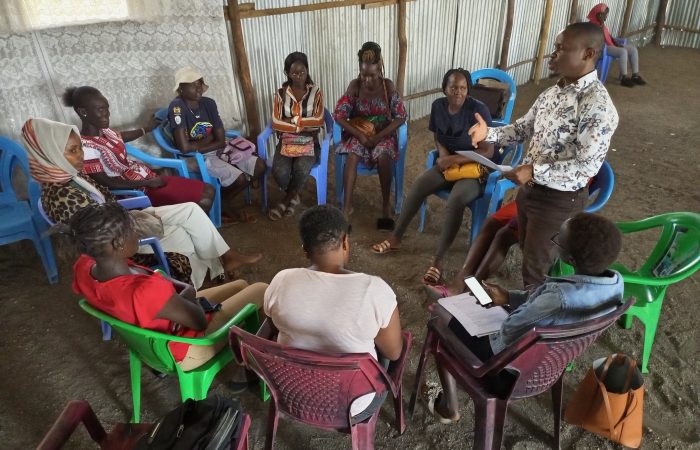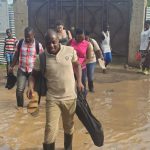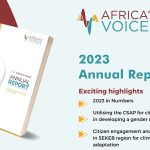Elizabeth attended our cohort conversations in Kalobeyei Settlement that aimed at challenging the norms that hinder young women from attaining financial independence and transitioning to technical trainings
Village 2 and Village 3 are located approximately 3kms apart in the expansive Kalobeyei settlement. Village 3’s central area is bustling, but not as much as Village 2’s. Here we encountered Elizabeth, a 26-year-old South Sudanese lady, living alone, who recently opened a restaurant. She narrates to us how she did this.
Elizabeth joined Africa’s Voices cohort conversations after learning about the sessions through one of Africa’s Voices mentors. Her story exemplifies tenacity, hard work, and resilience. She spent her whole life in refugee camps and never met her biological parents.
Despite facing a fair share of hardships in life, six months ago she encountered a more difficult situation. Elizabeth severed relations with her guardians, whom she had known as parents for the majority of her years and with whom she lived in the Kakuma refugee camp. Luckily, she was integrated into Kalobeyei Settlement and 3 months later met Africa’s Voices Foundation team.
“The three months were very difficult for me. I was relying on tokens, which was Ksh 1500 received from another development partner. That was insufficient for my needs, so I was debt-ridden. I got a small job with another local organization, but the pay I received was insufficient for my needs,”
Elizabeth stated.
With an understanding that Elizabeth’s story is not in isolation, Africa’s Voices conducted 6-week cohort conversations with financing from World University Services of Canada (WUSC). The discussions intended to assist young women in the settlement in removing obstacles that stand in their way of achieving financial independence by engaging in business or formal employment.
It’s these cohort conversations that Elizabeth now says turned around her life after she opened a small restaurant in the settlement. Through these conversations, Elizabeth and a group of 8 young women received mentorship training from successful business people in the community on critical skills like financial literacy, self reliance, customer relations, and time management.
“AVF provided Ksh 1000 transport allowance each week. I spent Ksh 800 and saved Ksh 200. I was urged to seek advice from other successful business people in the camp as well,”
Stated Elizabeth.
Elizabeth opened a restaurant with the money she saved, and on a good day, she reeks in a profit of Ksh 1000 by selling assorted foods (tea, mandazi, and mixture of maize and beans) to refugees and host communities. Unlike before, Elizabeth is now in a better position to cater for her needs without depending on anyone.
Thanks to Africa’s Voices, Elizabeth overcame challenges like low self-esteem, financial insufficiencies, and societal expectations that young women should marry and have husbands to take care of them. She now recommends that the training be escalated in the neighborhood in order to continue saving many young women who choose to get married or become entangled in alcoholism.




